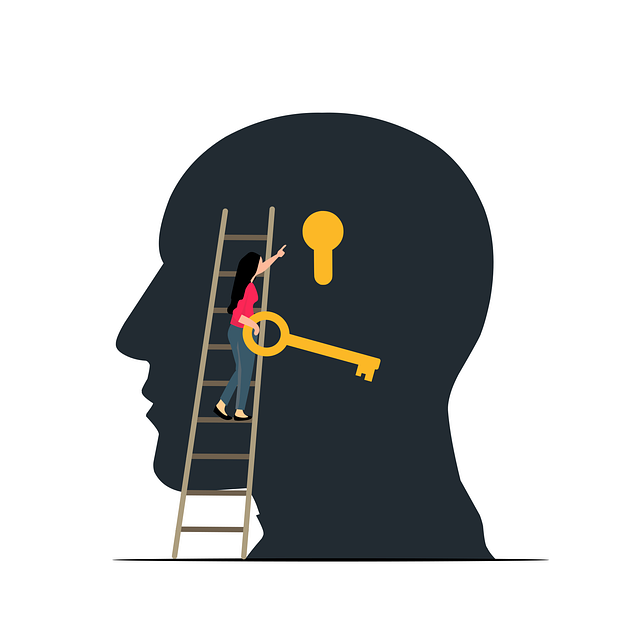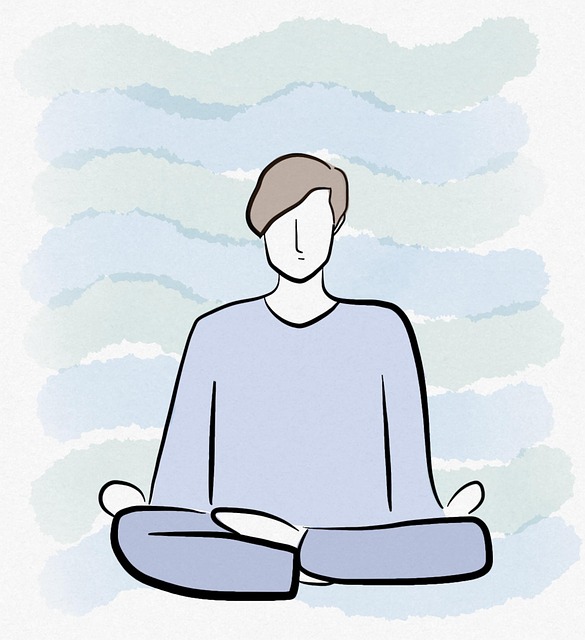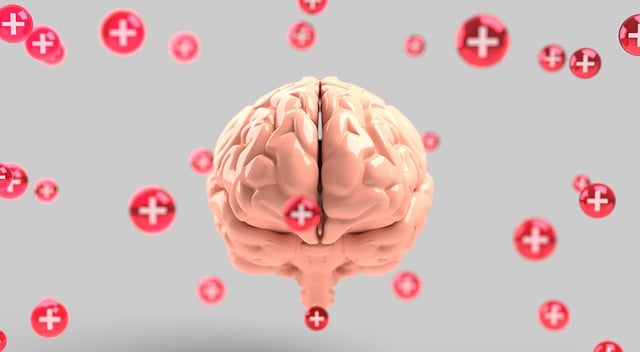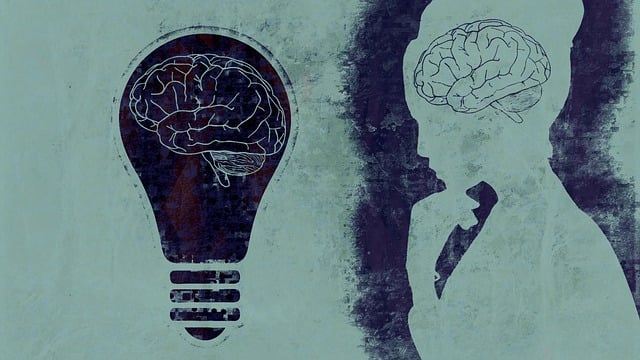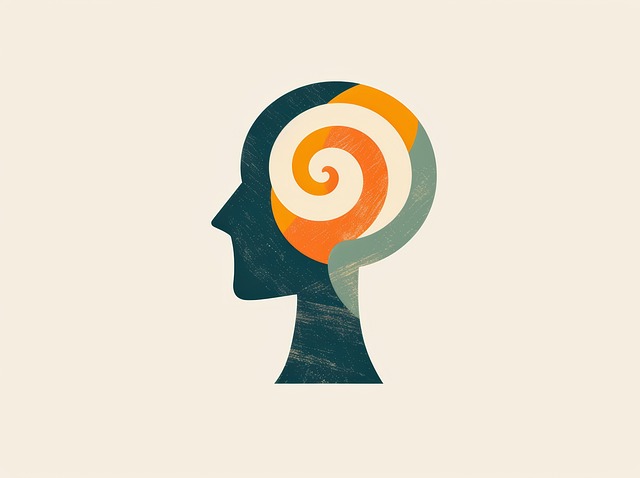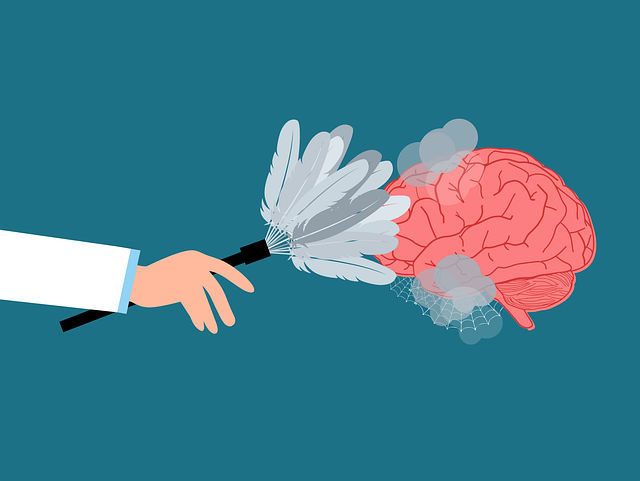Depression, a complex mental health issue, is addressable through a multi-faceted approach combining therapy, lifestyle changes, and education. Centennial Post-Traumatic Stress Disorder (CPT) therapy, emphasizing cognitive behavioral therapy, helps process trauma and reduce symptoms. Lifestyle interventions like exercise, balanced nutrition, and sleep are crucial for mental wellness. Self-care practices such as meditation and yoga further strengthen resilience. Tailored mental health education empowers individuals to manage stress and prevent depression. Professional guidance, including CPT and other therapeutic methods, support coping strategies and build resilience. Crisis intervention ensures immediate assistance during difficult times.
Depression is a prevalent yet complex mental health challenge, but with the right strategies, prevention is achievable. This comprehensive guide explores various approaches to safeguard your mental well-being, from understanding the triggers of depression and its impact on daily life to adopting lifestyle changes that cultivate resilience. We delve into self-care practices, relaxation techniques, and building coping mechanisms for hardship. Additionally, discover the therapeutic benefits of Centennial Post-Traumatic Stress Disorder (PTSD) therapy in addressing deep-seated issues.
- Understanding Depression and Its Triggers
- Lifestyle Changes for a Brighter Mindset
- The Power of Self-Care and Relaxation Techniques
- Building Resilience: Coping Strategies for Hardship
- Professional Help: Therapies and Support Systems
Understanding Depression and Its Triggers

Depression is a complex mental health disorder that significantly impacts an individual’s daily life and well-being. It’s more than just feeling sad or down for a brief period; it’s a persistent state of low mood, loss of interest in activities once enjoyed, and a range of physical and cognitive symptoms. Many factors contribute to depression, including genetic predisposition, brain chemistry imbalances, hormonal changes, environmental stressors, and past traumatic experiences.
One particular aspect that deserves attention is the role of post-traumatic stress disorder (PTSD), which can develop after experiencing or witnessing a traumatic event. Centennial PTSD Therapy focuses on helping individuals process and heal from these deep-seated traumas. By utilizing evidence-based practices such as conflict resolution techniques, social skills training, and cognitive behavioral therapy, therapists support clients in managing symptoms, reducing the impact of flashbacks and nightmares, and cultivating healthier coping mechanisms. Additionally, Mental Illness Stigma Reduction Efforts play a crucial role in fostering understanding and empathy, creating an environment where individuals feel empowered to seek help without fear of judgment.
Lifestyle Changes for a Brighter Mindset

Adopting a healthier lifestyle can significantly contribute to depression prevention and fostering mental wellness. Engaging in regular physical activity, maintaining a balanced diet, and ensuring adequate sleep are essential pillars for a brighter mindset. Exercise, for instance, releases endorphins that boost mood and reduce stress, while proper nutrition provides the brain with essential nutrients vital for optimal function. Moreover, establishing a consistent self-care routine, including practices like mindfulness meditation or yoga, can help individuals cultivate positive thinking and resilience against depression.
In addition to these lifestyle changes, seeking professional support through Centennial Post-Traumatic Stress Disorder Therapy (CPT) or engaging in Mental Wellness Podcast Series Production can offer valuable insights and coping mechanisms. These platforms provide access to expert advice and shared experiences, encouraging open dialogue about mental health challenges. By combining self-initiated lifestyle modifications with professional guidance, individuals can proactively develop a robust foundation for mental wellness, thereby reducing the risk of depression and enhancing overall well-being.
The Power of Self-Care and Relaxation Techniques

Depression prevention starts with prioritizing self-care and incorporating effective relaxation techniques into your daily routine. Chronic stress can lead to or exacerbate depression, making it crucial to learn and practice Stress Reduction Methods. Engaging in activities that promote mental health awareness, such as meditation, yoga, or spending time in nature, can help lower stress levels and foster a sense of calm. These practices have been shown to be beneficial for those who may be at risk of or currently dealing with depression, including individuals who have experienced Centennial Post-Traumatic Stress Disorder (PTSD).
Mental Health Education Programs Design tailored towards self-care and relaxation can empower individuals to take charge of their mental well-being. By learning and implementing these strategies, people can build resilience against depressive episodes. Incorporating regular moments for relaxation into your schedule allows you to step back from stressors, facilitating better stress management. This, in turn, contributes to a more positive mindset and overall improved mental health.
Building Resilience: Coping Strategies for Hardship

Building resilience is a key component in depression prevention and managing difficult circumstances. Coping strategies play a vital role in navigating life’s challenges, especially when facing hard knocks or traumatic events. By adopting certain techniques, individuals can enhance their ability to bounce back from adversity, fostering a sense of empowerment and emotional stability.
Centennial Post-Traumatic Stress Disorder (CPTSD) therapy, for instance, focuses on this resilience-building aspect. It equips individuals with tools to process trauma, develop healthy coping mechanisms, and improve overall mental well-being. Incorporating cultural sensitivity in mental healthcare practice is essential, recognizing that diverse communities may have unique ways of expressing and managing emotions. Stress reduction methods, such as mindfulness and emotional intelligence training, can also be powerful tools to help people navigate hardships with greater ease.
Professional Help: Therapies and Support Systems

Depression can often be successfully prevented with the right support and strategies. One crucial aspect is seeking professional help, which includes therapies like Centennial Post-Traumatic Stress Disorder (PTSD) Therapy. These therapeutic approaches are designed to address underlying issues, manage symptoms, and enhance coping mechanisms. Therapies such as cognitive-behavioral therapy (CBT), mindfulness-based interventions, and interpersonal psychotherapy have proven effective in preventing and managing depression.
In addition to individual therapies, establishing a strong support system is vital for mental wellness. This can involve joining support groups, connecting with friends and family, or partaking in Mental Wellness Coaching Programs that focus on inner strength development. Crisis intervention guidance from professionals can also be beneficial, providing immediate assistance during challenging times. Such interventions ensure individuals have access to the necessary tools and resources to navigate and overcome depressive episodes effectively.
Depression is a complex condition, but with the right tools and mindset, individuals can effectively manage and prevent its recurrence. By understanding personal triggers and adopting proactive lifestyle changes, such as prioritizing self-care and building resilience through coping strategies, one can foster a brighter and more resilient mindset. When challenges arise, seeking professional help through therapies like Centennial Post-Traumatic Stress Disorder (PTSD) therapy ensures individuals have the support needed to navigate tough times. Combining these strategies enables individuals to take charge of their mental health, fostering long-term well-being and preventing depression from taking hold.
